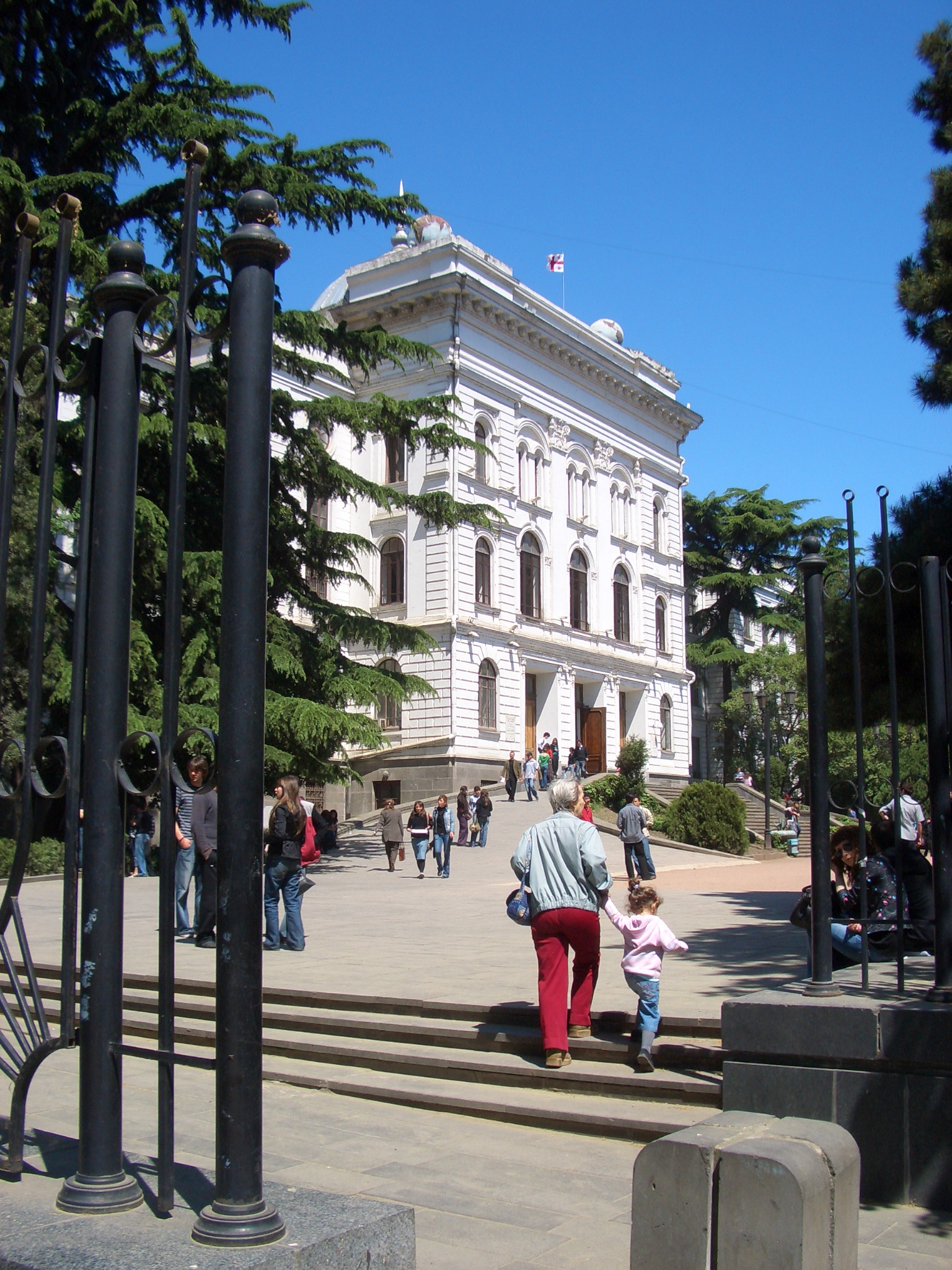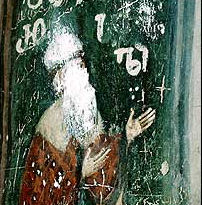|
Sargis Kakabadze
Sargis N. Kakabadze ( ka, სარგის ნესტორის ძე კაკაბაძე; October 7, 1886 – April 2, 1967) was a Georgia (country), Georgian historian and philologist, Doctor of Historical Sciences, Professor. He was born in 1886, in a small village Kukhi (Imereti region of Western Georgia). In 1910 he graduated from the Faculty of Oriental Languages of the Saint Petersburg, St.Petersburg University (Russia). In 1911-1918 he was a teacher of History of the Georgian Gymnasium of Tbilisi, in 1919-1967 Professor of the Tbilisi State University (TSU), in 1921-1926 Director of the State Historical Archive of Georgia, in 1945-1961 head of the Department of the Old Acts of this Archive. Main fields of scientific activity of Sargis Kakabadze were: history of Georgia, source studies of the history of Georgia and the Caucasus, history of Georgian literature, Rustvelology (Shota Rustaveli was a great Georgian poet of the 12th century), etc. He was author of ... [...More Info...] [...Related Items...] OR: [Wikipedia] [Google] [Baidu] |
Georgia (country)
Georgia is a country in the Caucasus region on the coast of the Black Sea. It is located at the intersection of Eastern Europe and West Asia, and is today generally regarded as part of Europe. It is bordered to the north and northeast by Russia, to the south by Turkey and Armenia, and to the southeast by Azerbaijan. Georgia covers an area of . It has a Demographics of Georgia (country), population of 3.7 million, of which over a third live in the capital and List of cities and towns in Georgia (country), largest city, Tbilisi. Ethnic Georgians, who are native to the region, constitute a majority of the country's population and are its titular nation. Georgia has been inhabited since prehistory, hosting the world's earliest known sites of winemaking, gold mining, and textiles. The Classical antiquity, classical era saw the emergence of several kingdoms, such as Colchis and Kingdom of Iberia, Iberia, that formed the nucleus of the modern Georgian state. In the early fourth centu ... [...More Info...] [...Related Items...] OR: [Wikipedia] [Google] [Baidu] |
Imereti
Imereti ( Georgian: იმერეთი, ) is a region of Georgia situated in the central-western part of the republic along the middle and upper reaches of the Rioni River. Imereti is the most populous region in Georgia. It consists of 11 municipalities and the city of Kutaisi, which is the capital of the region. Subdivisions The Imereti region has one self governing city (Kutaisi) and 11 municipalities with 163 administrative communities (temi), totalling to 549 populated settlements: * Eleven cities: Baghdati, Chiatura, Khoni, Kutaisi, Sachkhere, Samtredia, Terjola, Tkibuli, Tsqaltubo, Vani and Zestaponi; * Three dabas: Kharagauli, Kulashi and Shorapani; * Villages: 535 Economy Aside from the capital Kutaisi, significant towns and regional centres include Samtredia, Chiatura (manganese production centre), Tkibuli (coal mining centre), Zestaponi (known for metals production), Vani, Khoni, and Sachkhere. Traditionally, Imereti is an agricultural region, ... [...More Info...] [...Related Items...] OR: [Wikipedia] [Google] [Baidu] |
Saint Petersburg
Saint Petersburg, formerly known as Petrograd and later Leningrad, is the List of cities and towns in Russia by population, second-largest city in Russia after Moscow. It is situated on the Neva, River Neva, at the head of the Gulf of Finland on the Baltic Sea. The city had a population of 5,601,911 residents as of 2021, with more than 6.4 million people living in the Saint Petersburg metropolitan area, metropolitan area. Saint Petersburg is the List of European cities by population within city limits, fourth-most populous city in Europe, the List of cities and towns around the Baltic Sea, most populous city on the Baltic Sea, and the world's List of northernmost items#Cities and settlements, northernmost city of more than 1 million residents. As the former capital of the Russian Empire, and a Ports of the Baltic Sea, historically strategic port, it is governed as a Federal cities of Russia, federal city. The city was founded by Tsar Peter the Great on 27 May 1703 on the s ... [...More Info...] [...Related Items...] OR: [Wikipedia] [Google] [Baidu] |
Russia
Russia, or the Russian Federation, is a country spanning Eastern Europe and North Asia. It is the list of countries and dependencies by area, largest country in the world, and extends across Time in Russia, eleven time zones, sharing Borders of Russia, land borders with fourteen countries. Russia is the List of European countries by population, most populous country in Europe and the List of countries and dependencies by population, ninth-most populous country in the world. It is a Urbanization by sovereign state, highly urbanised country, with sixteen of its urban areas having more than 1 million inhabitants. Moscow, the List of metropolitan areas in Europe, most populous metropolitan area in Europe, is the capital and List of cities and towns in Russia by population, largest city of Russia, while Saint Petersburg is its second-largest city and Society and culture in Saint Petersburg, cultural centre. Human settlement on the territory of modern Russia dates back to the ... [...More Info...] [...Related Items...] OR: [Wikipedia] [Google] [Baidu] |
Georgian Gymnasium
Georgian may refer to: Common meanings * Anything related to, or originating from Georgia (country) **Georgians, an indigenous Caucasian ethnic group **Georgian language, a Kartvelian language spoken by Georgians **Georgian scripts, three scripts used to write the language **Georgian (Unicode block), a Unicode block containing the Mkhedruli and Asomtavruli scripts **Georgian cuisine, cooking styles and dishes with origins in the nation of Georgia and prepared by Georgian people around the world * Someone from Georgia (U.S. state) * Georgian era, a period of British history (1714–1837) **Georgian architecture, the set of architectural styles current between 1714 and 1837 Places *Georgian Bay, a bay of Lake Huron * Georgian Cliff, a cliff on Alexander Island, Antarctica Airlines *Georgian Airways, an airline based in Tbilisi, Georgia * Georgian International Airlines, an airline based in Tbilisi, Georgia *Air Georgian, an airline based in Ontario, Canada * Sky Georgia, an air ... [...More Info...] [...Related Items...] OR: [Wikipedia] [Google] [Baidu] |
Tbilisi
Tbilisi ( ; ka, თბილისი, ), in some languages still known by its pre-1936 name Tiflis ( ), ( ka, ტფილისი, tr ) is the Capital city, capital and List of cities and towns in Georgia (country), largest city of Georgia (country), Georgia, located on the banks of the Kura (Caspian Sea), Kura River. With around 1.2 million inhabitants, it contains almost one third of the country's population. Tbilisi was founded in the fifth century Anno Domini, AD by Vakhtang I of Iberia and has since served as the capital of various Georgian kingdoms and republics. Between 1801 and 1917, then part of the Russian Empire, it was the seat of the Caucasus Viceroyalty (1801–1917), Caucasus Viceroyalty, governing both the North Caucasus, northern and the South Caucasus, southern sides of the Caucasus. Because of its location at the crossroads between Europe and Asia, and its proximity to the lucrative Silk Road, throughout history, Tbilisi has been a point of contention ... [...More Info...] [...Related Items...] OR: [Wikipedia] [Google] [Baidu] |
Tbilisi State University
Ivane Javakhishvili Tbilisi State University ( ka, ივანე ჯავახიშვილის სახელობის თბილისის სახელმწიფო უნივერსიტეტი, tr; often shortened to its historical name, Tbilisi State University or TSU) is a public research university established on 8 February 1918 in Tbilisi, Georgia. Excluding academies and theological seminaries, which have intermittently functioned in Georgia for centuries, TSU is the oldest university in Georgia and the Caucasus region. The total enrollment is over 23,500 students, and there are 5,000 faculty and staff members (collaborators) overall. The main founder of the university was a Georgian historian and academician, Ivane Javakhishvili. Among the co-founders were also several scientists, including Giorgi Akhvlediani, Shalva Nutsubidze, Dimitri Uznadze, Grigol Tsereteli, Akaki Shanidze, Andrea Razmadze, Korneli Kekelidze, Ioseb Kipshidze, P ... [...More Info...] [...Related Items...] OR: [Wikipedia] [Google] [Baidu] |
Caucasus
The Caucasus () or Caucasia (), is a region spanning Eastern Europe and Western Asia. It is situated between the Black Sea and the Caspian Sea, comprising parts of Southern Russia, Georgia, Armenia, and Azerbaijan. The Caucasus Mountains, including the Greater Caucasus range, have conventionally been considered as a natural barrier between Europe and Asia, bisecting the Eurasian landmass. Mount Elbrus, Europe's highest mountain, is situated in the Western Caucasus area of Russia. On the southern side, the Lesser Caucasus includes the Javakheti Plateau and the Armenian highlands. The Caucasus is divided into the North Caucasus and South Caucasus, although the Western Caucasus also exists as a distinct geographic space within the North Caucasus. The Greater Caucasus mountain range in the north is mostly shared by Russia and Georgia as well as the northernmost parts of Azerbaijan. The Lesser Caucasus mountain range in the south is mostly located on the territory of sout ... [...More Info...] [...Related Items...] OR: [Wikipedia] [Google] [Baidu] |
Shota Rustaveli
Shota Rustaveli ( ka, შოთა რუსთაველი, – after c. 1220), mononymously known simply as Rustaveli, was a medieval Georgian poet. He is considered to be the pre-eminent poet of the Georgian Golden Age and one of the greatest contributors to Georgian literature. Rustaveli was the author of '' The Knight in the Panther's Skin'', a Georgian national epic poem. Biography Little, if anything, is known about Rustaveli from contemporary sources. Shota Rustaveli was born in 1166. He started serving Queen Tamar as a Minister of Finance in 1191. His poem itself, namely the prologue, provides a clue to his identity: the poet identifies himself as "a certain Rustveli." "Rustveli" is not a surname, but a territorial epithet that can be interpreted as "of/from/holder of Rustavi"; although a 10th century manuscript fragment found in 1975 in Saint Catherine's Monastery in Sinai attests to its use as a cognomen by a noble house of Ru(i)staveli. Later Georgian autho ... [...More Info...] [...Related Items...] OR: [Wikipedia] [Google] [Baidu] |
1886 Births
Events January * January 1 – Upper Burma is formally annexed to British Burma, following its conquest in the Third Anglo-Burmese War of November 1885. * January 5– 9 – Robert Louis Stevenson's novella '' Strange Case of Dr Jekyll and Mr Hyde'' is published in New York and London. * January 16 – A resolution is passed in the German Parliament to condemn the Prussian deportations, the politically motivated mass expulsion of ethnic Poles and Jews from Prussia, initiated by Otto von Bismarck. * January 18 – Modern field hockey is born with the formation of The Hockey Association in England. * January 29 – Karl Benz patents the first successful gasoline-driven automobile, the Benz Patent-Motorwagen (built in 1885). February * February 6– 9 – Seattle riot of 1886: Anti-Chinese sentiments result in riots in Seattle, Washington. * February 8 – The West End Riots following a popular meeting in Trafalgar Square, London. ... [...More Info...] [...Related Items...] OR: [Wikipedia] [Google] [Baidu] |

